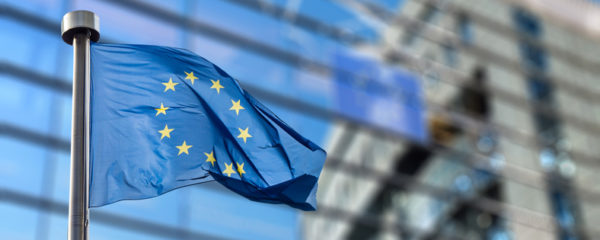A picture is worth a thousand words — or, potentially, millions of dollars. This week we take a snapshot of a brewing copyright case involving Wikimedia, a photographer and a macaque selfie.
As The Telegraph and other outlets reported last week, the makings of a legal battle began in 2011 when British nature photographer David Slater traveled to Indonesia to photograph the rare and endangered crested black macaques. After setting up his camera equipment in the forest, the friendly group of primates began to investigate, and a memorable selfie session ensued.
“The sound got his attention and he kept pressing it. At first it scared the rest of them away but they soon came back — it was amazing to watch. … He must have taken hundreds of pictures by the time I got my camera back, but not very many were in focus. He obviously hadn’t worked that out yet.”
The story and emotive selfie landed in major media reports. The image was then made part of the public domain when Wikimedia Commons posted it alongside millions of other royalty-free images and videos. In 2012, when Slater asked Wikimedia to remove it from its database because he claimed to own the copyright, a user took it down. Sometime later, however, it was posted to the site again and has remained ever since. The organization contends that since the macaque snapped the photo, it owns it, not Slater.
According to The Washington Post’s coverage, Slater had a similar disagreement in 2011 with the blog Techdirt, which was first to claim that the photographer didn’t own the copyright of a photo taken by an animal. When it received a request from the agency that licenses Slater’s photographs to remove the photo from its post on the copyright matter, it responded at length.
“The whole post was about whether or not anyone had a legitimate copyright claim on the photos, noting that the photographer, David Slater, almost certainly did not have a claim, seeing as he did not take the photos, and even admits that the images were an accident from monkeys who found the camera (i.e., he has stated publicly that he did not ‘set up’ the shot and let the monkeys take it). And yet, Caters News Agency has a copyright notice on two of the images, claiming to hold the rights to them. We doubted that the monkeys — who might have the best ‘claim’ to copyright on these photos, if there is one, had licensed the images.”
The blog also asserted the news agency’s misunderstanding of copyright law.
“More importantly, this highlights another case of someone completely misunderstanding the purpose and intent of copyright law, believing that it is universal and that it gives total control to the copyright holder. Caters does not even seem willing to consider that this image might not even have a copyright given its provenance. In fact, under Cater’s own definition, it seems just as reasonable for us to ask that it take down the image, given that we do not believe that it has a valid copyright interest in the image either. Not everything gets copyright, and when something is covered by copyright, it does not give the rightsholder full control over every use. It’s unfortunate that a company that has built a business around copyright appears not to understand these basic facts.”
As The Post succinctly summarized, “Slater’s dilemma highlights the murky and perilous landscape of intellectual property rights in the digital era.”
For Slater, it’s about being properly compensated for his work. As he told The Post:
“This is ruining my business. If it was a normal photograph and I had claimed I had taken it, I would potentially be a lot richer than I am.”
So, who’s in the copy right — Wikimedia or the photographer? We welcome your reactions below to this current monkey on copyright law’s back.








3 Comments
Dr Joseph Pace on at 11:57 am
Monkey business indeed!
My views are of curse not written in stone; just an opinion. In my view the ‘monkey who took the ‘selfie’can be legally deemed an unwitting surrogate for Mr Slater. No one a says that a mandate cannot reside in an animal.
Granted that Mr Slater CREATED the opportunity for the black monkeys to have a field day fiddling with his Camera, enjoying the clicks, fact remains there would be no Photo without Slater’s involvement.He went to that particular location purposely to photograph THESE monkeys, he set up HIS camera equipment for the purpose. If, accidentally, the monkeys started ‘CLICKING’ before he could start taking photos, these photos were created IN his camera,on HIS behalf, and as a result of HIS work. It appears therefore that Mr Slater has a vested interest in the copyright over all others. Monkey on your shoulder!
Dr Joseph Pace on at 12:04 pm
Hi, I apologize for some misprints in my former contribution.My views are of course not written in stone… No law says that a mandate cannot reside in an intelligent animal….May I add: The Monkey that took that excellent Photo of itself, technically delivered the Photo to Mr Slater..to him only and no one else. Wittingly or unwittingly, it acted on his behalf and interest. So can third parties who had no say whatever in the creation of the Photo claim public domain merely because ”the animal ..and not mr Slater..pressed the button’?
Je Rey on at 6:43 pm
I must say, after the long journey there, with equipment in tow, I would think the photographer has rights this photo. Not to mention, if he hadn’t brought his camera, this little guy would not being taking selfies.